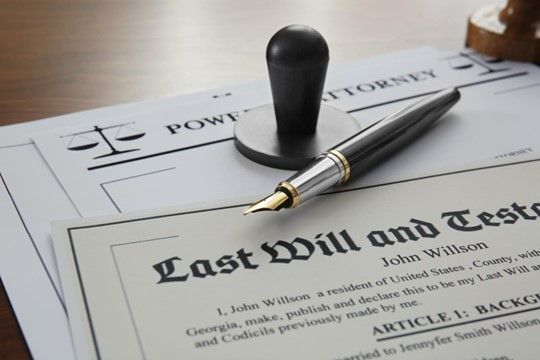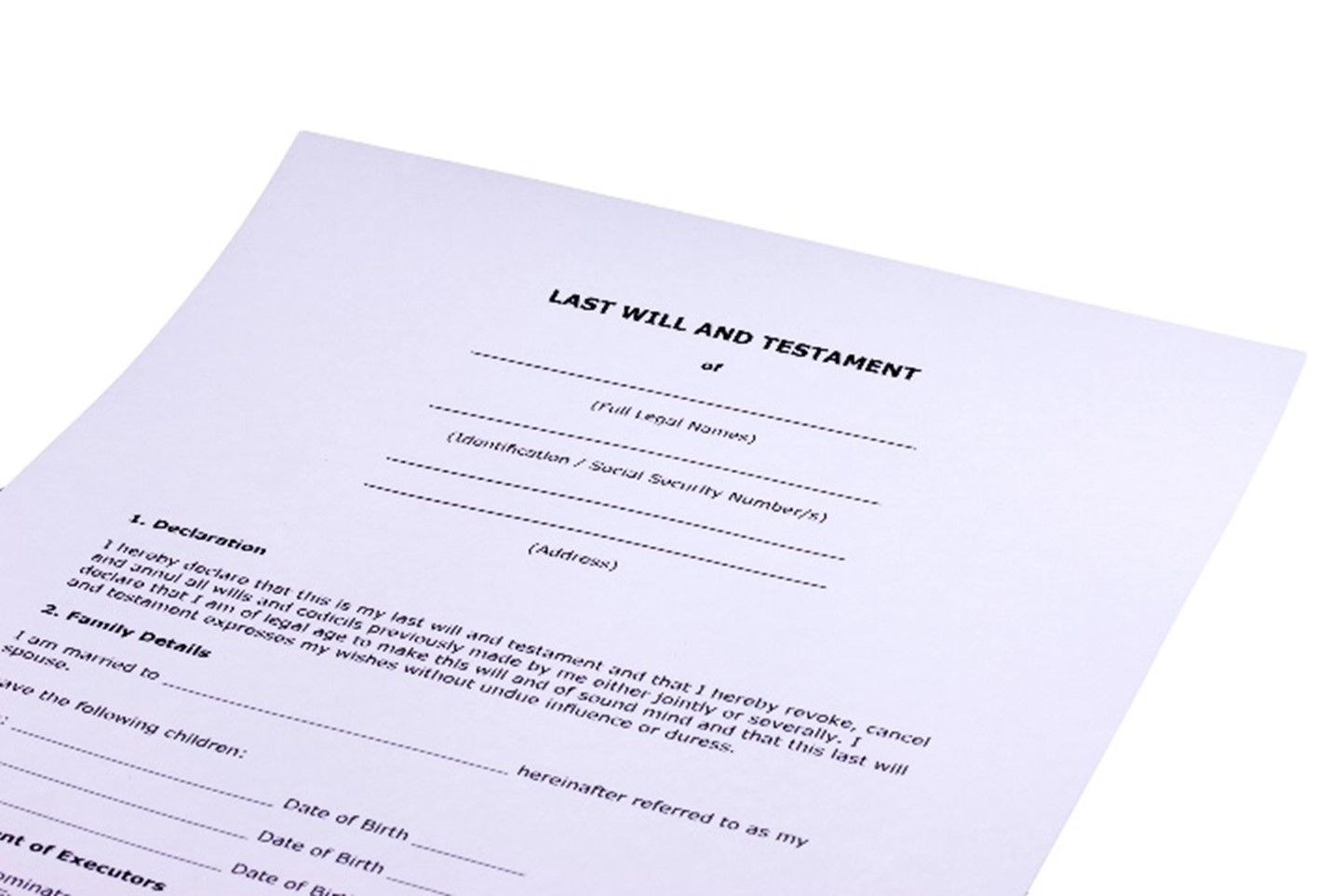Escobar & Associates Law Firm LTD’s Blog
Common estate planning errors include going without a plan, failing to keep a plan current, choosing inadvisable fiduciaries and overlooking contingencies.
These frequently asked questions about estate planning could address some of your concerns about this important process. When it comes to estate planning, most people have questions. Some may wonder if it’s necessary at all, particularly if they have a more modest estate, while others may be unsure about what options there are to meet their estate planning needs. Still others might want to know how to handle special situations like naming guardians for their children. No single article will adequately address all the concerns you may have about estate planning, but these commonly asked estate planning-related questions can help get you started. To learn more about protecting your assets and providing for your loved ones, contact the experienced estate planning attorneys at the Las Vegas law office of Escobar & Associates Law Firm, Ltd. Q. Do I need an estate plan? A. Simply put, yes. Even if you aren’t wealthy, having at least a basic will can still protect your assets from state and federal estate taxes and might help your loved ones avoid the probate process. Wills are also helpful to set aside individual assets for children of previous marriages and to make specific bequests to loved ones or charitable organizations. Q. How is a trust different from a will? A. Whereas a will is an expression of your intent when it comes to your assets and last wishes, a trust is a legal vehicle used to protect those assets and provide terms under which the assets will be distributed. For example, your will may state that you want your oldest child to inherit your share in the family business. A trust could be set up that, in the event you pass away before your child is old enough to take control of the business, transfers your interest to your child once he or she reaches age 21. Q. What is probate, and why would you want to avoid it? A. Probate is a specific legal process designed to handle estate-related matters. Probate courts are responsible for administering wills and trusts, handling will contests, deciding trust litigation and making determinations on other key issues. In general, probate can be a time-consuming and exacting process, with even basic estates taking 120 days or more to complete. Larger, more complicated estates can take months or even years, and can involve much more time and money. Q. How can I name a guardian for my children or special needs loved ones? A. The estate planning process isn’t just about assets. Estate planning tools can be used for other purposes as well, such as setting out terms for guardianship of children or vulnerable adults. Guardianship is the process by which someone is assigned to provide care for and make decisions on behalf of another person, typically a child or adult with special needs (someone with an incapacitating illness or developmental disability). Guardianship in Nevada can also apply to estate holdings; you can name a guardian to accept responsibility for making financial decisions on behalf of another, including those relating to bank accounts, paying bills, managing real estate and running a business. Q. How do I protect my hard-earned assets? A. Asset protection is often the number one goal of people when they begin the estate planning process. You have worked hard for your money; why shouldn’t you take steps to protect it? Estate plans can be structured to avoid expensive estate taxes, prevent disqualification from key government benefits (like Medicare or Medicaid that could be used to pay for long-term care) and ensure that future generations will reap the financial benefit of your hard work by holding assets in a conditional trust.
It is helpful to understand the difference between the two classes of assets and how they are distributed when putting together your estate plan. If you have gone through the estate planning process, you may assume that your will would control the distribution of all your property. In reality, you own two types of property: probate and non-probate. Each type is distributed differently. It is therefore important to have a basic understanding of the distribution rules for each to ensure that your estate is distributed according to your wishes. How probate assets are distributed Probate assets must go through the probate process before they may be distributed. During this process, if you have a will, the probate court examines it to ensure that it is valid. Additionally, the court appoints a personal representative to find your heirs, pay your estate’s debts and taxes, and gather your assets. Once this process has been completed and your assets have been distributed according to your will’s terms, probate is complete. If you have a will, all probate assets are distributed according to its terms. However, if you do not have a will, your probate assets still must clear probate before distribution. However, in this case, the ultimate task of probate is to distribute your property according to Nevada’s intestacy laws. These are the default rules of distribution for those without a will. In general, your probate assets are things that only you own. Such property may include motor vehicles, real estate (owned only by you), bank accounts that are in your name, stocks and personal belongings. How non-probate assets are distributed As the term suggests, non-probate assets do not have to go through probate before they are distributed. Non-probate assets, unlike probate assets, are property that is jointly owned or has its own designations of beneficiaries. Such assets often include: Jointly-owned real estate Life insurance Joint bank accounts Retirement plans Assets within a trust Pensions and annuities Other accounts or assets with a “payable-on-death” or beneficiary designation Unlike probate assets, your will does not control the distribution of non-probate assets; they are distributed according to their beneficiary designations. Because of this fact, problems can arise if there are conflicts between your beneficiary designation and what your will says. For example, you may intend for your life insurance proceeds to be used to fund your children’s educations. However, if you name your spouse as your beneficiary (instead of a trust for example), he or she may use the assets for any purpose, no matter what your will says. This is one of the many problems that can arise if your estate plan is not in order. To ensure that your assets are distributed in the manner that you wish, consult with an experienced estate planning attorney. The attorneys at Escobar & Associates Law Firm, Ltd. can listen to your goals and put the necessary measures in place to carry them out.
Individuals need to understand how important it is for them to have the assistance of an attorney in creating a comprehensive estate plan. Estate planning is an area of the law that many people find to be somewhat intimidating. They may have several questions about what they need to do, but they are uncomfortable thinking about leaving their families behind after they pass away. Some of these individuals may fail to properly plan for the future, which can make for a very difficult situation in the future. This article discusses some of the common issues that often arise in estate planning, and can provide some guidance on what individuals should do to ensure that their final wishes are carried out. 1. I have a will, do I need to do anything else to have a comprehensive estate plan? While creating a will is a great first step in estate planning , it is only a small part of the big picture. Some individuals may have assets that would be better protected by trusts, and it is essential that they have a discussion about all of the possible options available to pass along their property to family or friends. Additionally, it is extremely important that those who have created wills ensure that these documents are kept up to date. Changes in family situations, such as a divorce or remarriage, require that individuals update their estate planning documents to be reflective of their current situation. 2. There is no history of major health problems in my family, is a medical health directive really necessary? Yes – you need to create a medical health directive, because no one can predict the future. You may be injured in a motor vehicle accident, or, become slowly incapacitated over time by a medical condition. If you have these documents in place, it can prevent your family from having to make a difficult decision. 3. I just graduated from college and have recently started my first full-time job. Should I wait until I start a family before planning my estate? The sooner you begin estate planning, the better. While you may think it is too early to start planning, unplanned events can happen at any time. If you take time to create a comprehensive plan, you will be able to make changes in the future when you begin to add to your family. If you have additional questions about estate planning, the experienced attorneys at Escobar & Associates Law Firm, Ltd., can help you draft all the documents you need to protect your family. They will take the time to review your specific situation, and put a plan in place that allows you to feel confident that your assets will be passed along according to your wishes.
When a loved one has a disability, a special needs trust can provide for services and care without affecting benefit eligibility. When you raise and care for a child with special needs, your biggest worry is probably what happens once you are gone. The Census Bureau reports that 56 million Americans have some form of disability. Autism spectrum disorders, for instance, affect one in 68 U.S. children, according to estimates from the Centers for Disease Control and Prevention. Setting up a special needs trust as part of an estate plan provides peace of mind. Most disabled individuals receive government benefits through Supplemental Security Income – currently $721 per month – and/or Medicaid. These benefits generally cut off when a special needs recipient has assets totaling more than $2,000. Listing a disabled child directly as the beneficiary of a 401(k) retirement account or an insurance policy thus affects benefit eligibility. In 1993, Congress passed a statute that excluded certain trust assets from consideration as resources for SSI and Medicaid eligibility. Self-settled and third party trusts can thus bridge shortfalls between benefits received and actual costs. Self-settled trust When funds that belong to the disabled child fund the trust, it is self-settled. A parent, grandparent, guardian or the court must set up this type of trust. An typical example is a parent creating a trust using the child’s insurance settlement money or an inheritance directed to the child from a grandparent. With a self-settled trust, there is a payback provision. This means that when the beneficiary of the trust dies the government can collect the trust’s assets as repayment for Medicaid services provided during the individual’s life. Third party trusts With third party trusts, there is no payback provision. These can be set up and funded by anyone, but funds must not belong to the beneficiary. When a grandparent wants to leave an inheritance or give a birthday gift to a disabled grandchild, placing the funds into a trust is often a better option than a direct gift. Extended family needs to be on the same page or gifts and inheritances could affect benefit eligibility. Choosing a trustee Many parents delay setting up a trust and finalizing estate plans, because the process may seem overwhelming or they do not know whom to designate as trustee. A combination of a family member and a corporate trustee can work well. The relative understands the needs of the child and the financial advisor handles management of the funds. Frequently, a family will select a sibling as trustee. Sometimes if the relationship between a brother and sister is distant, a professional trustee removed from the emotion of dealing with bipolar disorder over the years may be preferable. Not having a will or any estate plan poses problems, because intestacy laws may mean a disabled child inherits a portion of your estate affecting eligibility. Making a call to an estate planning lawyer is the first step. A lawyer can answer your specific questions and draft estate documents that work together to provide for your loved one without affecting benefit eligibility.
Ready to schedule a consultation? Call 702-789-1422.





